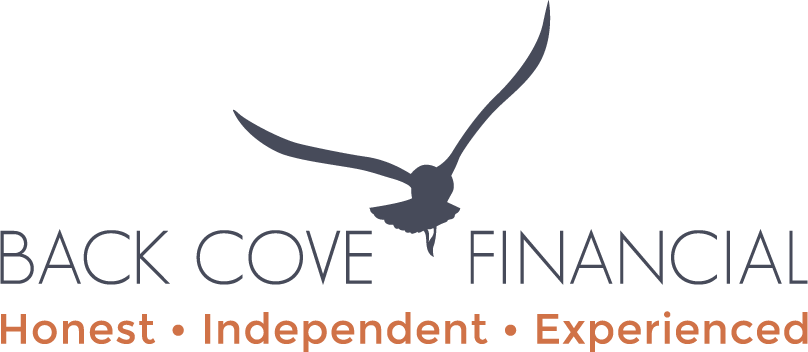

Back Cove Financial

Maine, United States
April 2023
Investment advising
Service with Minor Environmental Footprint
United States
Back Cove Financial is an independent wealth management firm that serves individuals, families, and businesses. Their mission is to provide honest, independent, experienced financial advice. They define their success by their positive impact on people’s lives and are driven by their commitment to their clients, employees, and community. Back Cove Financial holds themselves accountable to their environmental, economic, and social impacts through an emphasis on community involvement and sustainable action. Together their team works towards the common goal of maintaining a paperless office, avoiding single use products, composting, recycling, utilizing an EV charging station, and holding one of Maine’s only CSRIC designees. They strive to provide a work culture that commits to the prosperity of their employees by offering 401k match and profit sharing, maternity, and paternity leave, work from home flexibility, and continuing education. They are committed to equitable access of financial advice and offer a wide variety of personalized programs and services. Securities and advisory services offered through Commonwealth Financial Network, Member FINRA/ SIPC, a Registered Investment Adviser. Fixed insurance products and services are separate from and not offered through Commonwealth.
Overall B Impact Score
Governance 13.3
Governance evaluates a company's overall mission, engagement around its social/environmental impact, ethics, and transparency. This section also evaluates the ability of a company to protect their mission and formally consider stakeholders in decision making through their corporate structure (e.g. benefit corporation) or corporate governing documents.
What is this? A company with an Impact Business Model is intentionally designed to create a specific positive outcome for one of its stakeholders - such as workers, community, environment, or customers.
Workers 28.0
Workers evaluates a company’s contributions to its employees’ financial security, health & safety, wellness, career development, and engagement & satisfaction. In addition, this section recognizes business models designed to benefit workers, such as companies that are at least 40% owned by non-executive employees and those that have workforce development programs to support individuals with barriers to employment.
Community 25.0
Community evaluates a company’s engagement with and impact on the communities in which it operates, hires from, and sources from. Topics include diversity, equity & inclusion, economic impact, civic engagement, charitable giving, and supply chain management. In addition, this section recognizes business models that are designed to address specific community-oriented problems, such as poverty alleviation through fair trade sourcing or distribution via microenterprises, producer cooperative models, locally focused economic development, and formal charitable giving commitments.
Environment 4.6
Environment evaluates a company’s overall environmental management practices as well as its impact on the air, climate, water, land, and biodiversity. This includes the direct impact of a company’s operations and, when applicable its supply chain and distribution channels. This section also recognizes companies with environmentally innovative production processes and those that sell products or services that have a positive environmental impact. Some examples might include products and services that create renewable energy, reduce consumption or waste, conserve land or wildlife, provide less toxic alternatives to the market, or educate people about environmental problems.
Customers 25.0
Customers evaluates a company’s stewardship of its customers through the quality of its products and services, ethical marketing, data privacy and security, and feedback channels. In addition, this section recognizes products or services that are designed to address a particular social problem for or through its customers, such as health or educational products, arts & media products, serving underserved customers/clients, and services that improve the social impact of other businesses or organizations.
What is this? A company with an Impact Business Model is intentionally designed to create a specific positive outcome for one of its stakeholders - such as workers, community, environment, or customers.